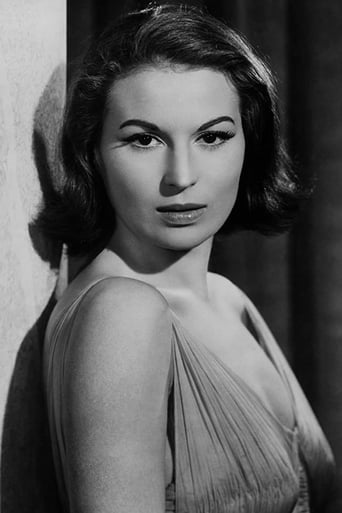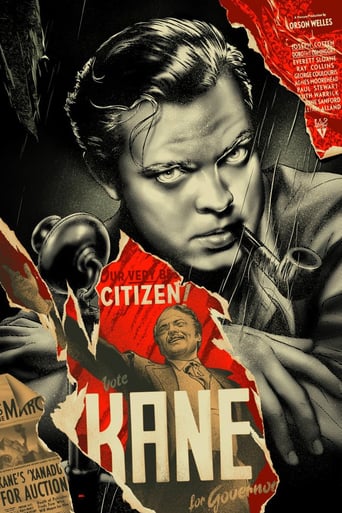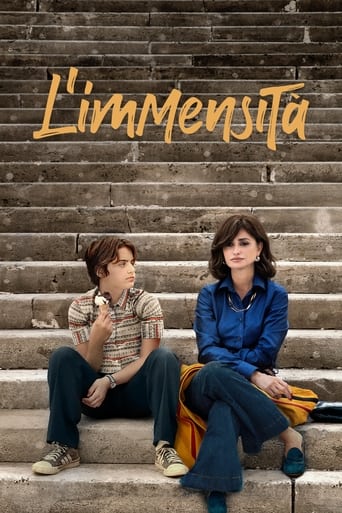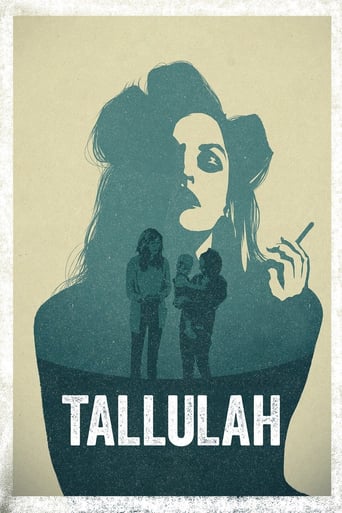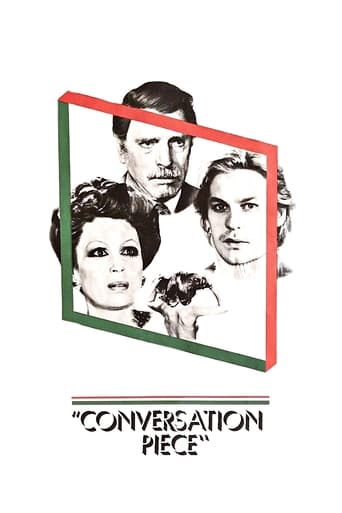
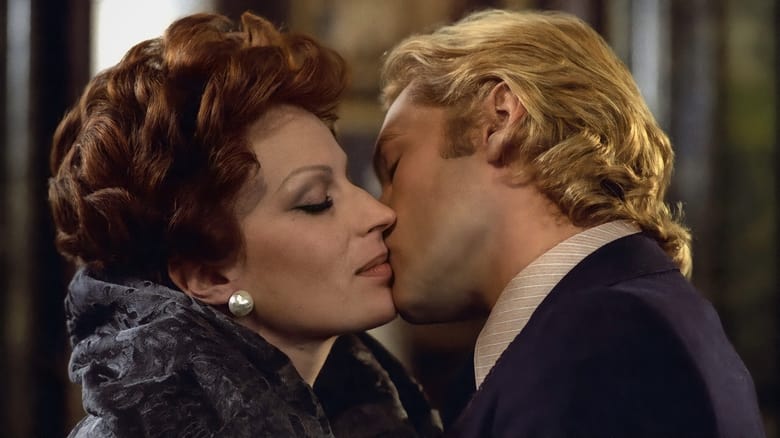
Conversation Piece (1974)
A retired professor of American origin lives a solitary life in a luxurious palazzo in Rome. He is confronted by a vulgar Italian marchesa and her lover, her daughter and her daughter's boyfriend, and forced to rent to them an apartment on the upper floor of his palazzo. From this point on his quiet routine is turned into chaos by his tenants' machinations, and everybody's life takes an unexpected but inevitable turn.
Watch Trailer
Cast


Similar titles
Reviews
On a second viewing after a 35 year gap, I am convinced this is indeed a lovely work and a major work of Visconti. This is is also one of those rare films that an actor--Burt Lancaster--helped a director to make a great film. (One recalls Kirk Douglas prevailing on Stanley Kubrick to change the ending of Paths of Glory, only to make it a major work of cinema). Here, Burt Lancaster, staked his own money to complete the film as producers backed out noticing the director was ill and could die before the film was completed.One major fact that I did not realize was the title did not relate to conversations in the movie but was a well known (in the world of paintings) title for a series of paintings. That makes you to reassess the entire film. The film is a study of Italy through the eyes of three generations and their varied values on social interactions, art, politics, architectural design, music, et al.Once you evaluate the film on the basis of the painter's decision to change the very trees and objects in his painting compared to the photograph taken of the same scene, the movie's stature itself changes. The opening credits that begin with a blast followed by the electrocardiogram graph roll streaming out unattended is a Visconti masterstroke.That the film was made by the director sitting on a wheel chair is impressive. Is it a film about acquiring possessions or about understanding people? Both. One realizes the importance of understanding human behaviour of strangers, as one educated professor was withdrawing into solitude surrounded by books, works of art and great music. And his life changes for the richer experience in his sunset years. A great film indeed with superb performances from Burt Lancaster and Silvana Mangano. The cameos of Claudia Cardinale and Dominique Sanda do not contribute much except in providing insights into the character of the professor.Highly recommended for serious viewers of good quality cinema.
Luchino Visconti co-wrote and also directed this from a wheel chair, after his first heart attack. The movie reminds me of playwright Henrik Ibsens style. Indeed this is very much like a play. All the action taking place in a retired Professors (Burt Lancaster) plush house in Rome. When a brash young group of mis-fits rent a room upstairs ..the Professors sedate life changes completely. The subtext is vital here, and more than one viewing is recommended. The professor has long given up on communication between humans, and the clash of the old and the new makes him even more certain. Its a brilliant piece of work--although the sound track which was added later is sometimes annoying. Lancaster is great --indeed all of the main players do a wonderful job. Visconti is credited for ushering in the neo-realist cinema. Later he departed from this style and became more melodramatic--with intense character development. This movie is from his later style.
"Conversation Piece" stars Burt Lancaster as a retired science professor whose life is turned upside down by the intrusion of a rowdy family of strangers. Director Luchino Visconti goes to lengths to stress Lancaster's seclusion. He's an American born Italian-American living in Rome and has long since settled into a life of quiet study, spending long days browsing his own private art collection. He has a live-in housekeeper and is occasionally visited by art tradesmen, but for the most part Lancaster lives a secluded, contemplative life, his house a tomb of memories, his body awaiting death.Enter Bianca Brumonit, an Italian noblewoman who wishes for her daughter and son to move into the top floor apartment of Lancaster's mansion. Lancaster, of course, doesn't wish for her to move in, but after much argument eventually gives in. The lease will run a year and he will be well paid.But it turns out that Mrs Brumonit also intends for the apartment to be used by her boy-toy, a young lover and erratic Leftist called Konrad Huebel. When Mrs Brumonit's husband finds out about Konrad's existence, however, he gives her an ultimatum: divorce, or find a more suitable "extramarital lover". Brumonit chooses divorce.Unfortunately Konrad doesn't like this. He's tired of being treated as a male hustler and is tired of life itself. He commits suicide, an act which finally gets all these damned strangers out of Lancaster's house and allows Lancaster to slowly and peacefully die himself.So, in typical Visconti fashion, what we have here is a film about very specific collisions. Collisions between classes, between cultures, between classical and modern, between young and old etc. As such, Lancaster's house is clearly demarcated, downstairs secure and ordered whilst the "new order" upstairs is shown to be constantly expanding, building works not only slowly taking over and encroaching on the rest of the house, but destroying the very history, customs and artwork stored within. Meanwhile the Brumonit family is portrayed as the outdated remnants of a selfish aristocracy, the mother trying to retain her status and relevance by latching onto feisty youths who would have opposed her family during its heyday. Like Visconti's own "The Leopard" and "The Damned", the film thus watches as a man witnesses his world vanish into modernity (in contrast to Visconti's "The Innocent", in which a man cuts himself off from the past by embracing a sort of Nietzschean hedonism and/or defiance).This has led to some believing that Visconti feared social change and romanticised the "old order", painting them as men of intellect, art and reason. But the film's web of relationships is too complex to be reduced to such simple binaries. It criticises both the old and the new, and paints Konrad as a sort of synthesis of the two, his inability to exist in these spaces, or synergize the two worlds, resulting in his death. Visconti's question is, with the death of Lancaser and Konrad, who inherits Italy? The film's answer seems to be: the worst of both worlds.7.5/10 – Visconti's style had long since changed by this point, the energy of his early films ("White Nights", "Rocco and His Brothers" etc) giving way to an approach that's just too theatrical and dialogue driven. See Assayas' "Summer Hours" for a sort of modern masterpiece which covers similar material. Worth one viewing.
This is Luchino Visconti's first feature film after his almost fatal heart attack. He was in a wheel chair and his left side was completely paralyzed. Enrico Medioli's original story about a man who's facing the end of his life, whether consciously or unconsciously seemed very close to the knuckle. I've read a lot of material and talked to people connected to the production before actually seeing the movie. Nothing had prepared me for what the film presents to the audience and I wondered if the film that ended up on the screen was the film that Visconti intended. Starting from the cast: the first rumors that Visconti was ready to go back to work, announced the film with Laurence Olivier and Audrey Hepburn in the roles that went to Burt Lancaster and Silvana Mangano. Anne Marie Philipe and Martin Donovan (the director) in the roles that went to Claudia Marsani and Stefano Patrizi. For what I gather, Olivier was sick at the time and couldn't accept. Audrey Hepburn turned it down, Donovan and Philipe found themselves outside the co-production regulations where two Italian nationals were required for those roles. Helmut Berger was the one who survived all the changes and I'm tempted to say: unfortunately! His character is the one who doesn't ring true. Clearly, Lancaster's character would have seen through Berger's. There is nothing in his character that made me believe Lancaster would feel attracted and fall for. Berger is a prissy, emotionally flabby, pretty boy. He is also unbelievable as Silvana Mangano's lover. The film as a whole takes place in Lancaster's dark and elegant apartment. Against his better judgment he rents the upper floor to this new, rich, beautiful and vulgar family. His world is going to start to collapse under the weight of the young invaders without soul. Solemmn, sad and a bit static the film however has a masterful center that makes it compelling viewing. Two brief cameos by Dominique Sanda as the mother and Claudia Cardinale as the dead wife bring some unexpected oomph to the grim proceedings. Even if I sound a bit down on the film I'm actually recommending it.




